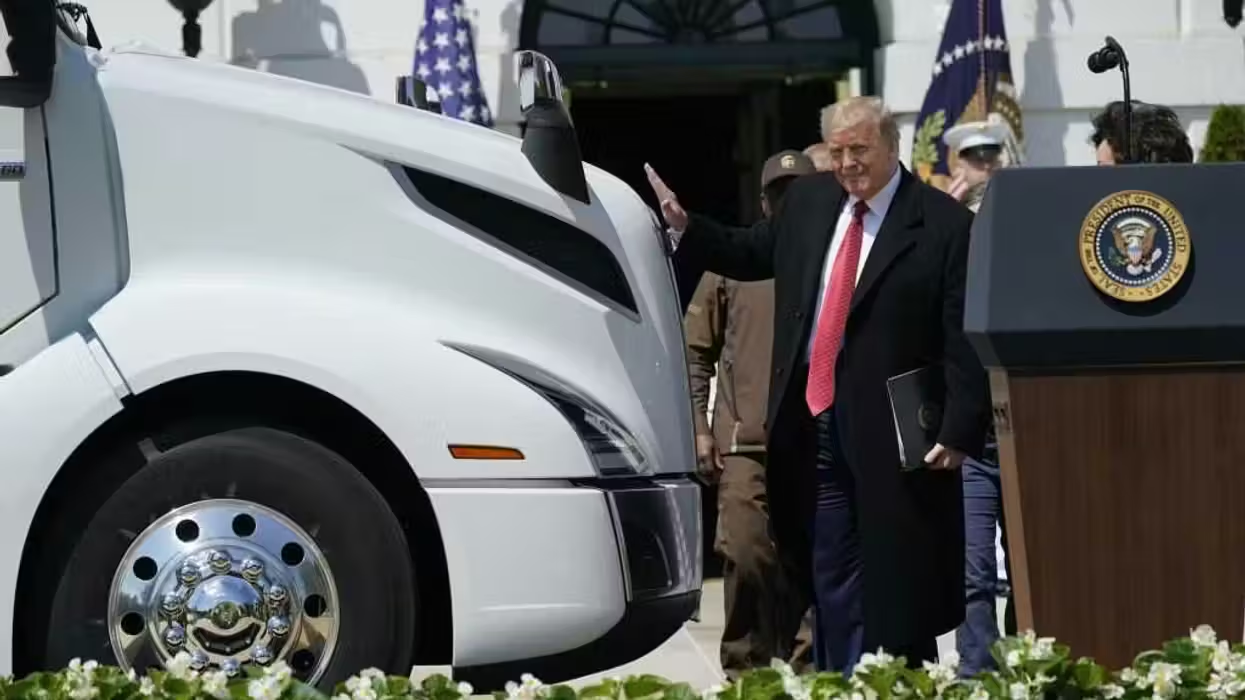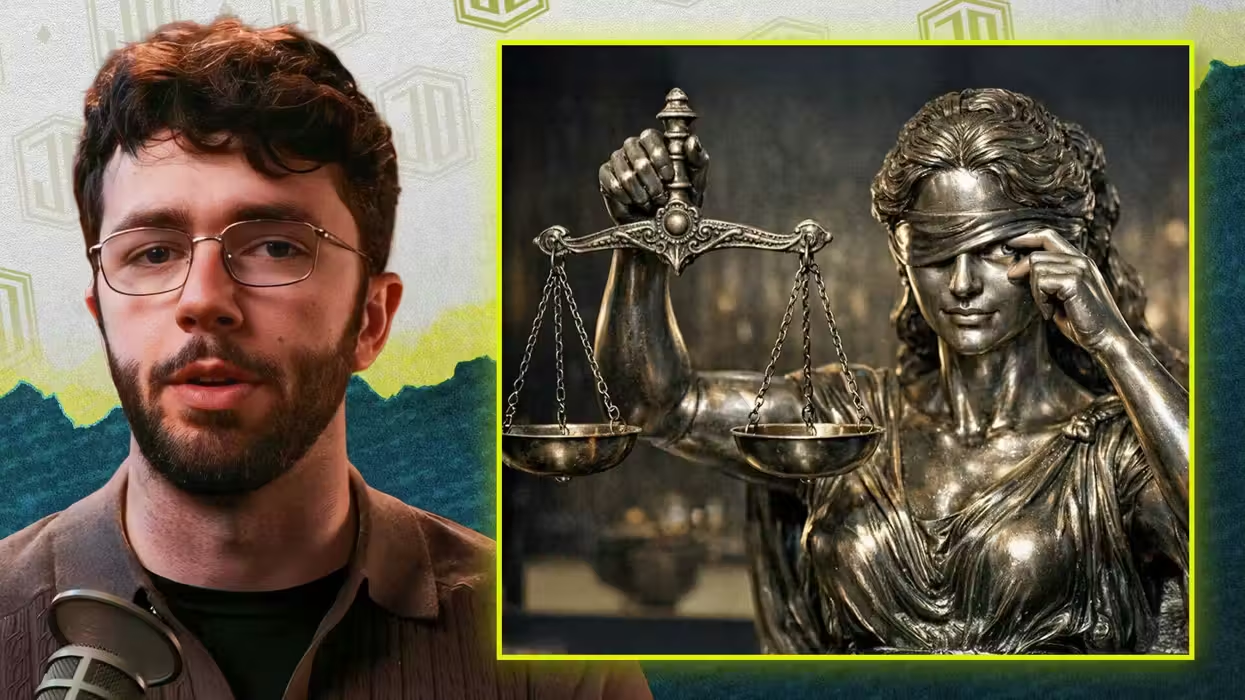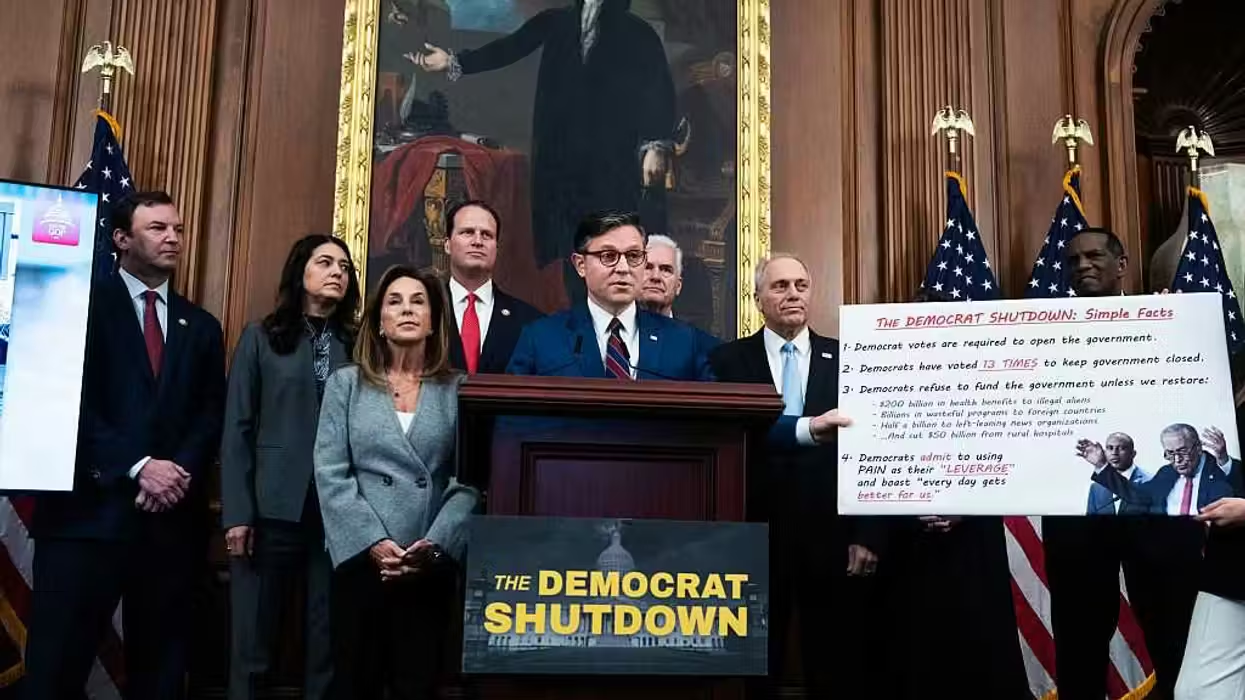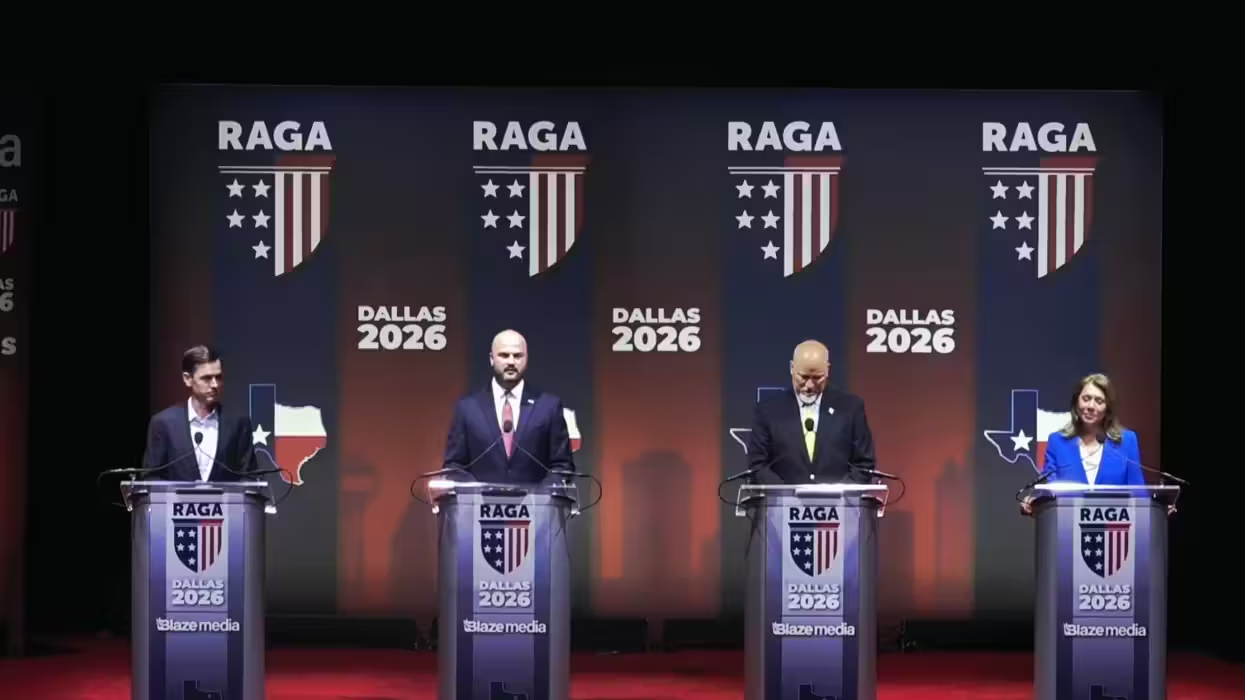
© 2026 Blaze Media LLC. All rights reserved.
None of the "fallback" plans are appetizing.
Even if some House Republicans end up supporting a compromise as the House-passed cut, cap and balance bill goes to the Senate floor for debate, House Speaker John Boehner is sticking to his guns, emphatically stating there is "absolutely no deal."
WASHINGTON (The Blaze/AP) -- House Speaker John Boehner predicted Thursday that a majority of House Republicans will end up supporting some kind of compromise as the Senate began debating a House-passed effort to tie an increase in the debt ceiling to conservative demands for a balanced budget amendment to the Constitution.
Majority Leader Harry Reid, D-Nev., called up the measure to placate Republicans demanding a vote. But he said it "doesn't have one chance in a million of passing the Senate."
At a news conference, Boehner told reporters, "Frankly, I think it would be irresponsible on behalf of the Congress and the president not to be looking at back-up strategies for how to solve this problem."
"At the end of the day, we have a responsibility to act," the Ohio Republican said.
Asked whether GOP lawmakers supporting the House's "cut, cap and balance" debt limit measure would be unwilling to ultimately compromise, Boehner said, "I'm sure we've got some members who believe that, but I do not believe that would be anywhere close to the majority."
Meanwhile, White House spokesman Jay Carney reported little progress from private meetings President Barack Obama held Wednesday with Boehner and House Majority Leader Eric Cantor, and separately with congressional Democratic leaders.
"There is no deal, we are not close to a deal," Carney said.
"There is no progress to report but we continue to work on getting the most significant deficit reduction package possible because we think it's the right thing for the economy," he said.
Boehner's talk of possible accommodation in the protracted political stalemate over federal budget policy came as the Senate took up the tea party-backed House legislation Thursday. It ties an increase in the government's borrowing authority to a series of conservative demands, including immediate spending cuts and a constitutional balanced budget amendment.
Democrats argue that the so-called "cut, cap and balance" measure would impose untenable spending restraints and set spending levels, as a percentage of the overall economy, on par with the mid-1960s - before the advent of Medicare and automatic Social Security cost-of-living adjustments.
The development Thursday reflected the reality that there's more talk than progress as official Washington wrangles daily over finding a way out of a debt dilemma that has the government sliding inexorably toward a first-ever default on its financial obligations.
Senate Minority Leader Mitch McConnell, R-Ky., said Thursday the legislation now before his chamber would be an opportunity for lawmakers to "go on record in support of balancing our books or against it." He urged Democrats to join GOP senators in backing it.
Democrats are expected to kill the measure - which they say would demand debilitating cuts to Medicare - in a vote on Saturday if not before.
Meanwhile, momentum on a separate bipartisan budget plan by the Senate's "Gang of Six" seemed to ebb as critics warned the measure contains larger tax increases than advertised and it became plain that the measure comes too late and is too controversial to advance quickly - particularly as a part of a debt limit package that already would be teetering on a knife's edge.
Sen. Kent Conrad, D-N.D., a member of the Gang of Six, said Thursday that some 40 senators of both parties back the plan his group has brought forward. It generally takes 60 votes to pass legislation in the 100-member Senate because the rules permit unlimited debate unless a supermajority votes to limit it.
But Conrad also said he feels there's too little time between now and Aug. 2 to complete a comprehensive package of spending cuts, benefit program changes and an overhaul of the tax code.
Conrad said doing nothing is not an option, saying that "we're all going to have to do things we'd prefer in a perfect world not to have to do."
Absent a breakthrough between Obama and Republicans, there is a hotly contested backup plan by McConnell that would give Obama broad new powers to obtain increases in the government's borrowing unless blocked by veto-proof two-thirds margins in both the House and Senate.
Many conservative Republicans are in an uproar over the McConnell plan, and more than 70 House members signed a letter circulated by members of the conservative Republican Study Committee calling on Boehner to come out in public opposition to the McConnell-Reid plan..
In a shift, said Wednesday that Obama would back a short-term deal to prevent a disastrous financial default on Aug. 2 but only if a larger and still elusive deficit-cutting agreement was essentially in place.
Officially, the president continued to push for a big compromise that would cut the nation's budget deficit and extend the government's tapped-out borrowing power above the current $14.3 trillion cap. Obama had threatened to veto any stopgap expansion of the nation's debt limit, at one point last week even challenging House Majority Leader Eric Cantor, R-Va., not to call his bluff about it.
Carney said if a divided Congress and the White House can agree on a significant deal, Obama would accept a "very short-term extension" of the debt limit to let bigger legislation work its way through Congress.
Obama also is open to the McConnell plan, but it seems barely aloft due to fervent tea party opposition in the House. The hope appears to be that such an option will look a lot better to the House in a week or so, given the lack of other ideas.
The Gang of Six plan has come under assault from critics like House Budget Committee Chairman Paul Ryan, R-Wis., who say the plan would increase taxes by $2 trillion over the next 10 years instead of the $1 trillion-plus claimed by proponents like Conrad - a development likely to stunt momentum among Republicans.
The revenue increase is larger than advertised because the $1.2 trillion in new taxes comes on top of an underlying assumption used by Obama's deficit commission - and incorporated by the Senate group in its plan - that the Bush-era income tax brackets for family income exceeding $250,000 would revert to the higher, Clinton administration levels. The deficit panel's assumption was made before Obama buckled in December and signed a full extension of the Bush tax cuts.
The Gang of Six plan also earned poor reviews from liberals like Rep. Jerrold Nadler, D-N.Y., who said it would "balance the budget on the backs of the vulnerable."
And Rep. Howard "Buck" McKeon, R-Calif., who is chairman of the House Armed Services Committee, blasted the plan in a missive to his panel members, saying it would cut the Pentagon much too deeply and would unfairly curb military health and retirement benefits.
The Gang of Six plan promises almost $4 trillion in deficit cuts, including an immediate 10-year, $500 billion down payment that would come as Congress sets caps on the agency budgets it passes each year. It also requires an additional $500 billion in cost curbs on federal health care programs, cuts to federal employee pensions, curbs in the growth of military health care and retirement costs, and modest cuts to farm subsidies.
Meanwhile, during an interview with Rush Limbaugh Thursday, the House Speaker was adamant about not having reached any kind of deal with Democrats, telling Limbaugh "There is no deal. No deal publicly, no deal privately. There is absolutely no deal. "
Want to leave a tip?
We answer to you. Help keep our content free of advertisers and big tech censorship by leaving a tip today.
Want to join the conversation?
Already a subscriber?
more stories
Sign up for the Blaze newsletter
By signing up, you agree to our Privacy Policy and Terms of Use, and agree to receive content that may sometimes include advertisements. You may opt out at any time.
Related Content
© 2026 Blaze Media LLC. All rights reserved.
Get the stories that matter most delivered directly to your inbox.
By signing up, you agree to our Privacy Policy and Terms of Use, and agree to receive content that may sometimes include advertisements. You may opt out at any time.







